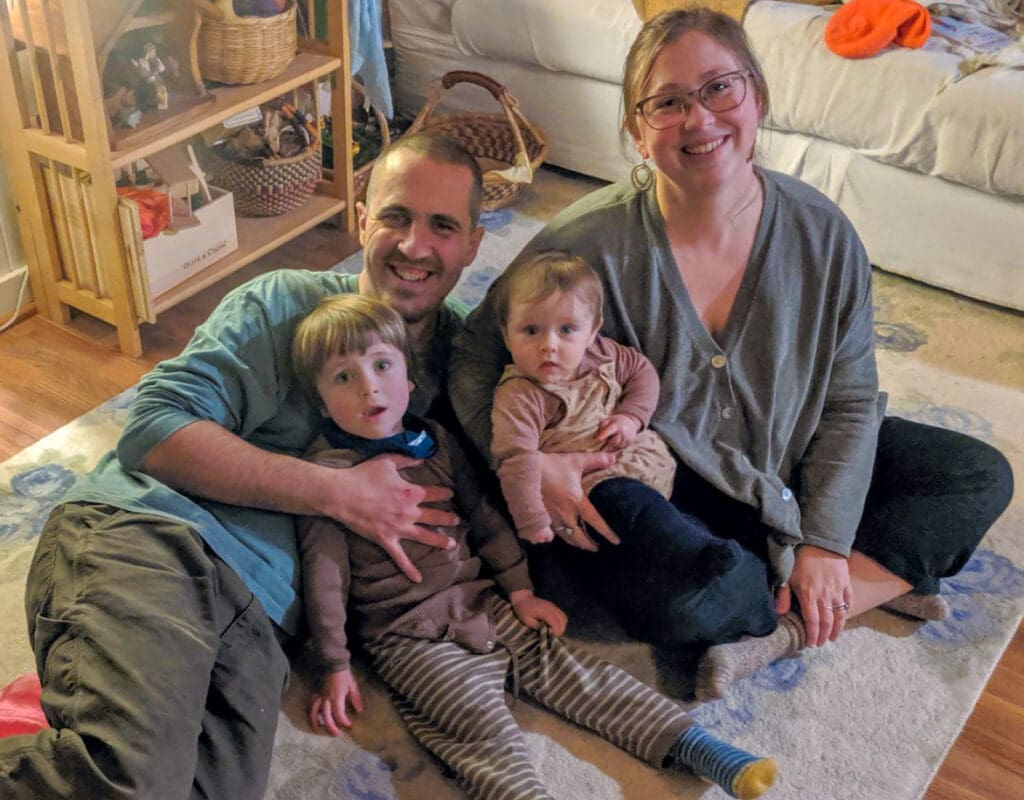Trusting the Strangers in the Helicopter
Sunny Dilley was two days old when she flew in a helicopter from Bar Harbor to Bangor. Angela, her mother, remembers watching from the passenger seat of a car in the hospital parking lot as the aircraft lifted off. The helicopter quickly disappeared into the distance, and the car pulled out onto the street heading in the same direction.
Every LifeFlight of Maine crew member will tell you what deep respect they feel for the patients who entrust them with their care. To have such trust placed in you is humbling. But little compares to the reverence elicited by the mothers who put their children in the hands of strangers in green flight suits and watch them fly away.
In Sunny’s case, as in many of LifeFlight’s neonatal and infant transports, there simply wasn’t space in the helicopter for Angela to ride along. Sunny was tucked safely into an isolette, a specialized piece of medical equipment resembling an enclosed cradle that is temperature-controlled and designed for providing ICU-level care during transport to the smallest patients. At her bedside in the back of the helicopter were two nurses from Northern Light Eastern Maine Medical Center’s (EMMC) neonatal intensive care unit (NICU), who specialize in caring for infants, along with a LifeFlight critical care transport nurse. Sunny was receiving the best care available, and her mother had to trust the caregivers.

Two days earlier, on March 22, 2023, Sunny had been born in her family’s home in Bass Harbor. “My birth with Sunny went really well,” Angela recalls. But as Sunny’s skin began to develop a yellow hue, their midwife had advised them to take her to Mount Desert Island Hospital for further care. Jaundice is a relatively common diagnosis in newborns. It is caused by high levels of bilirubin, a yellowish pigment that is produced as red blood cells break down. In most cases, it resolves with limited medical intervention.
“When we arrived [at MDI Hospital], they did blood work,” Angela said, “and they almost told us to go home.” Angela and her husband, Merlin, decided to wait for the blood results. Soon, a doctor was explaining to them that Sunny’s bilirubin levels were the highest they had ever seen. “The lab technician actually thought it was a mistake,” Angela remembers. “At that point, we weren’t really sure what was going on. Then I overheard the word ‘LifeFlight.’ Very quickly, people in helicopter suits showed up, and that’s when I realized what was happening.”
“That moment when Donna, Paige, and Nate (the LifeFlight and EMMC clinical team) showed up, there was a real difference in what was happening in the room,” Angela said. “As parents we were in a state of panic. They were so calm and collected and in an almost meditative state and knew exactly what they needed to do.”
“They didn’t have to speak that many words to each other at all,” Angela continued. “That really sets the tone for establishing that trust and knowing that they are on top of it, and that things are going to be as okay as they can be right now.”


Sunny was flown to Bangor, where she spent 14 days in the NICU at Eastern Maine Medical Center. With such elevated levels of bilirubin in her bloodstream, Sunny was at risk for tissue damage with potentially long-term effects. “There was no way of knowing how to proceed,” Angela said. “Just a constant follow-up with every kind of doctor you can imagine.”
By the time Sunny was discharged from the NICU, the irritation that had been visible in scans two weeks earlier had vanished, but the uncertainty about long-term effects continued, and still continues in some ways. Though, with each passing month Sunny is growing normally and concerns are fading away. There was uncertainty about her hearing, but her medical team now believes her hearing is normal. “She’s a year old. She’s crawling and pulling herself up, doing all the normal things that she should be doing,” Angela said in a recent conversation. With a big, wide-eyed smile, Sunny is living up to her name.
As Angela shared her family’s story, she confessed that hearing the sound of a helicopter still makes her emotional. “Looking back, I know how critical it all was,” Angela remembers. “Bangor doesn’t feel that far to me. The helicopter ride meant everything, and I know it saved her life. We couldn’t have waited any extra minutes.”

